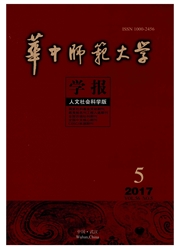

 中文摘要:
中文摘要:
本文使用1982年以来历次中国人口普查数据和中国家庭追踪调查(CFPS)数据,分析中国家庭成员间职业地位的代际影响,进而分析中国家庭多代之间职业地位流动性的变化规律。研究表明,在控制父辈特征的情况下,祖辈对孙辈职业地位有显著的影响,进一步发现改革开放以来中国家庭代际职业地位流动性呈现“U型”变化的趋势。本文探讨了中国代际职业地位流动性变化趋势的形成机制,研究发现,市场化程度的加深和人口迁移有助于提高代际间职业地位的流动性;独生子女政策的贯彻实施使得家庭代际职业地位流动性先增加后下降。改革开放以来“U型”的代际职业地位流动性变化趋势是上述多种因素共同作用的结果。
 英文摘要:
英文摘要:
This paper investigates the intergenerational occupational mobility of Chinese families using the census data and CFPS data. It reveals the direct effect of grandparents' occupational status on grandchildren's counterpart when controlling the parents' characteristics. Besides, the Chinese intergenerational occupational mobility from 1982 to 2010 shows an U-shaped tendency. The paper tries to find out the mechanism behind this tendency and comes to the conclusion that, the deepening of marketization, the one-child policy and population mobility have different effects on the inter-generational occupational mobility.
 同期刊论文项目
同期刊论文项目
 同项目期刊论文
同项目期刊论文
 期刊信息
期刊信息
